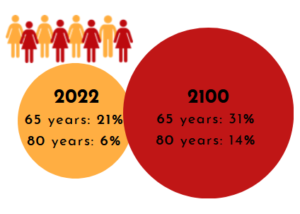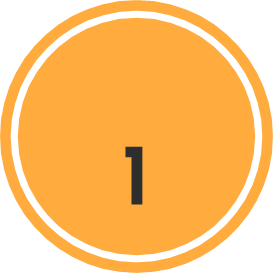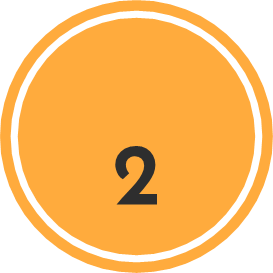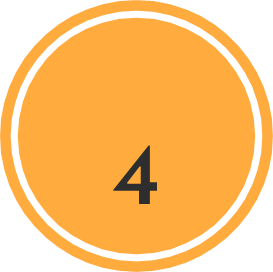Supporting migrants’ professional and social integration as carers
The objective of the MiCare project is based on a win-win approach: to support migrants’ professional and social integration as carers while improving the quality of care delivered to older people.
Migrants, especially women, are poorly integrated in European labour markets (Eurostat, 2019) and, to a large extent, concentrated in sectors of the economy which are traditionally linked to unpaid reproductive, and hence unrecognized and undervalued work such as domestic work (ILO, 2013). Still, domestic work remains one of the main areas of employment available to women migrants (Eurostat, 2012). Health care, services to families and domestic work – these sectors are considered as an opportunity to integrate migrant women in the labour market by policy makers. And this is what MiCare project intends to facilitate.
Key Figures
AGEING EUROPE
Demographic change and population ageing is a confirmed trend in European countries due to low levels of fertility over many years. Recent projections from Eurostats point out that the number of people over 65 years old will increase by 2100 (figure “population ageing trends in the EU”).
Population ageing trends in the EU

Source: Eurostats
JOB DEMAND IN THE PHS SECTOR
Demographic change has a direct effect on the evolution of job demand in the personal and household service (PHS). This sector covers jobs and services related to the support of households and it represents 9,5 million jobs, or 4% of the total EU employment. Among the jobs in the PHS sector, assistance to older people or people with decreasing autonomy plays a key-role as the average age of population increases.
JOB SUPPLY IN THE PHS SECTOR
On the other hand, estimations of CEDEFOP anticipate that 4.2 million carers will retire by 2030. This creates a dual scenario where there are favourable employment prospects for carers working with older people, but also an immediate need to address the long-term care demands throughout the European Union.
SPECIFIC JOBS… SPECIFIC SKILLS
However, not everyone can provide Personal and Household Services (PHS). SkillsPanorama Report on Care workers: skills opportunities and challenges (2019) points out that people working as carers require specific skills that are often underestimated, for example, language skills, the ability to work independently and the capacity of observation to check physical and mental health on a daily basis are some of the illustrations.
THE MICARE PROJECT
The MiCare project funded by the Erasmus+ Program, contributes to the social and professional integration of migrant women in the care sector by:
- 1. Providing concrete tools to support migrant women’s labour market participation.
- 2. Encouraging the provision of professional care services in the formal economy rather than in the shadow economy.
- 3. Improving the quality of long-term care systems in EU.
The project is supported by 6 partner organizations (CESUR, LAUREA, MARGOTTA, UDD and WIAB) and coordinated by IPERIA, a French association working in the recognition and professionalization of home employment sector in France with several years of expertise in European projects.
The MiCare project key phases

November 2020- August 2021
Production of a cross-country study that identifies good practices, obstacles, and leverages for the professional integration of migrant women.

September 2021 – November 2022
Development of tools
- A Competence framework containing competencies and skills to work as a caregiver with older people.
- An assessment tool to identify training needs.
- A blended training course.
December 2022 – February 2023
Pilot phase in 3 partners countries to test the project tools in real-life conditions.
March 2023– June 2023
Compilation, analysis of data, and design of a practical guide of the MiCare tools. Organization of dissemination events in partners countries.
Promotional material of the project
Leaflet


